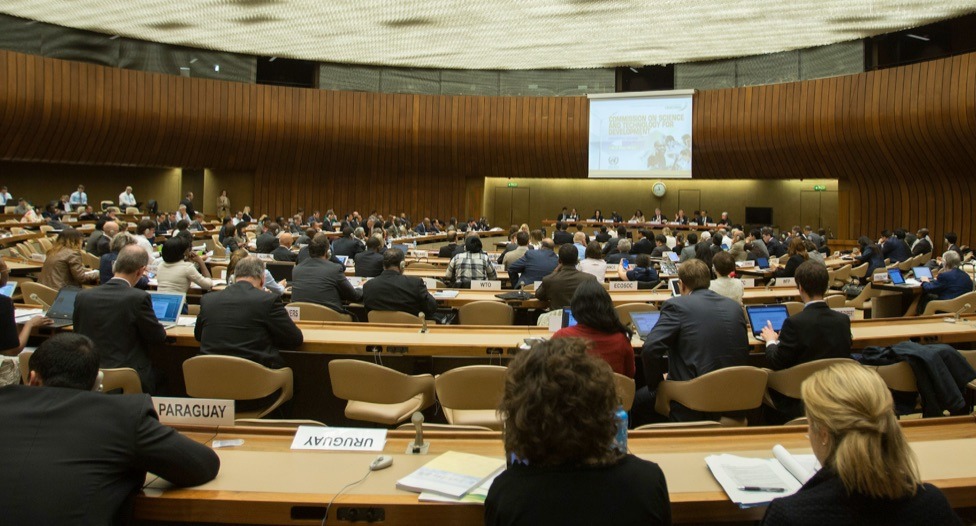Note: Earlier today, 4 May 2015, Raúl Echeberría, our Vice President for Global Engagement, gave the following speech at in Geneva at the annual session of the UN Commission on Science and Technology for Development (CSTD). This week’s CSTD meeting is the last phase of the WSIS review process before the UN General Assembly process begins in June. During the meeting a report on “Implementing WSIS outcomes: A ten-year review” will be discussed and a Resolution on WSIS will be negotiated. This Resolution will provide important guidance for the UN events happening in New York in December.
————-
Excellencies, distinguished guests, ladies and gentlemen,
It is my honor to participate in this 18th session of the CSTD and to share with you the perspective of the Internet Society on the opportunities and challenges for the information society in 2015 and beyond.
We’ve come a long way since the Tunis Agenda recognized the respective roles and responsibilities of governments, businesses, civil society, and the technical and academic communities in shaping the evolution of the Internet ecosystem. In just the past 10 years, we have made impressive progress in implementing the goals laid out at the WSIS in Geneva and Tunis. The Internet’s infrastructure has expanded significantly and today more than 3 billion people are online but access is not the ultimate goal. The Internet should provide opportunities and should be a platform for economic and social opportunities and for the improvement and enjoinment of human rights.
Over the past decade, we have witnessed a shift of paradigm in the way international cooperation is led. We’ve learned, that the most lasting solutions derive from cooperation and mutual respect – principles that have proven to be key in the history of the development of the Internet technology. We have made some impressive improvements in the implementation of these goals.
The Internet works because its governance is open, inclusive, collaborative, and transparent. And, over the years, the significance of multistakeholder processes and partnerships has been clearly demonstrated. There are many examples; I’ll share just two.
The first is the Internet Governance Forum, the “IGF” where governments, private sector, civil society and the technical community come together to share ideas and exchange knowledge to ensure the Internet will continue to remain open, secure and resilient for all. The IGF community, even though it is comprised of people from all walks of life and all regions of the world, is united in its willingness to address concrete issues, with a view to work towards tangible solutions. As a result, the discussions at the IGF have been a catalyst in much of the Internet’s growth. 2015 marks the end of the second five-year renewal of the IGF, and its continuation will be discussed at the UN General Assembly at its upcoming session. In light of the above, we strongly call for the renewal of its mandate beyond 2015 and welcome Mexico’s proposal at the last UN General Assembly to host the 2016 IGF in their country.
Multistakeholder processes are not always easy; they often takes times and hard discussions. But the results are also often more robust, efficient and legitimate as a consequence. We are firm believers that they are worth our efforts. Multistakeholder governance is not an end in itself; the objective is human development. Multistakeholder processes are not easy; they take time but they result in more robust processes.
In the same spirit, we believe that the upcoming preparations for the WSIS+10 High-Level event in December, should be as inclusive as possible., We call on the President of the General Assembly and the two co-facilitators, as well as all the delegates present today, to facilitate effective participation of all stakeholders.
So where do we go Post-2015? The Internet community — all stakeholders — need to keep the momentum going forward and continue the hard work to ensure that the 2005 WSIS targets continue to progress. As a global organization of 71,000 members and 108 chapters in 92 countries, we at the Internet Society look forward to working with you all here at this meeting as well as all the other stakeholders not here to fulfill the ambitious targets set out 10 years ago in Tunis. Establishing positive goals will set the course for a world where everyone can access a connected, borderless, limitless Internet that provides opportunity and progress for all, and will also be essential to reach the Sustainable Development Goals to be defined by the U.N. this year.
Thank you.
Image credit: U.S. Mission Photo/Eric Bridiers on Flickr

